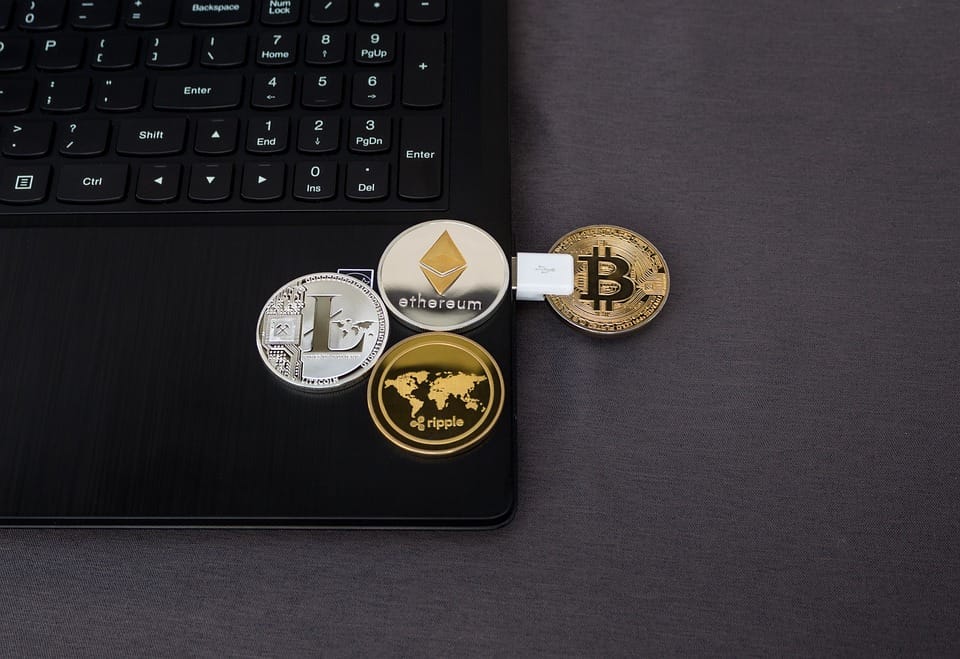Blockchain and Cybersecurity: The Ultimate Match-Made in Heaven for Digital Finance
In today’s digital age, cybersecurity has become a pressing concern for businesses and individuals alike. The increasing reliance on digital channels for financial transactions has led to a surge in cyber threats, making it imperative to adopt robust security measures to protect sensitive data. Blockchain technology, often touted as the backbone of cryptocurrency, has emerged as a game-changer in enhancing cybersecurity in digital finance. In this article, we’ll delve into the intricate relationship between blockchain and cybersecurity, exploring how this technology can revolutionize the way we approach digital finance.
The Rise of Digital Finance
The rise of digital finance has brought about unprecedented opportunities for individuals and businesses to conduct financial transactions online. From mobile banking to online stock trading, the landscape of financial services has undergone a significant transformation. However, this increased reliance on digital channels has also exposed individuals and businesses to a multitude of cyber threats.
The Growing Concern of Cybersecurity
Cybersecurity is no longer just a concern for IT professionals; it’s a top priority for businesses and individuals alike. The increasing number of data breaches, hacking incidents, and identity thefts has led to a loss of trust in traditional financial institutions. The rise of cyber attacks has resulted in financial losses, damage to reputation, and regulatory fines, making it crucial to adopt robust security measures.
The Role of Blockchain in Cybersecurity
Blockchain technology, first introduced in 2008, has evolved significantly since its inception. Initially, blockchain was primarily associated with cryptocurrency, but its applications have expanded to various industries, including finance, healthcare, and supply chain management. The underlying technology of blockchain, a decentralized and distributed ledger, has made it an attractive solution for enhancing cybersecurity in digital finance.
How Blockchain Enhances Security in Digital Finance
Blockchain’s decentralized and distributed nature makes it an attractive solution for enhancing security in digital finance. Here are some ways in which blockchain technology can improve cybersecurity:
- Immutable Ledger: Blockchain’s decentralized ledger ensures that all transactions are recorded and stored in a secure, immutable manner. This eliminates the risk of data tampering, modification, or deletion.
- Encryption: Blockchain technology uses advanced encryption algorithms to secure data, making it virtually impossible for hackers to access sensitive information.
- Decentralized Network: Blockchain’s decentralized nature eliminates the risk of single-point failures, making it more resilient to cyber attacks.
- Transparent Transactions: Blockchain’s transparent nature allows for real-time monitoring of transactions, making it easier to detect and prevent fraudulent activities.
- Smart Contracts: Blockchain’s smart contract functionality enables the creation of self-executing contracts, eliminating the need for intermediaries and reducing the risk of human error.
Case Studies: Blockchain in Cybersecurity
Several case studies have demonstrated the effectiveness of blockchain in enhancing cybersecurity in digital finance:
- SWIFT’s Blockchain Solution: The Society for Worldwide Interbank Financial Telecommunication (SWIFT) has developed a blockchain-based solution to improve cybersecurity in international transactions.
- IBM’s Blockchain Platform: IBM’s blockchain platform has been used by several financial institutions to enhance cybersecurity and improve transparency in transactions.
- Blockchain-Based Identity Verification: Blockchain-based identity verification systems have been developed to enhance security in online transactions and reduce the risk of identity theft.
Conclusion
Blockchain technology has emerged as a game-changer in enhancing cybersecurity in digital finance. Its decentralized and distributed nature, combined with advanced encryption algorithms and transparent transactions, make it an attractive solution for businesses and individuals alike. As the demand for digital finance continues to grow, it’s imperative to adopt robust security measures to protect sensitive data. Blockchain technology has the potential to revolutionize the way we approach digital finance, providing a secure and transparent platform for financial transactions.
FAQs
Q: What is blockchain, and how does it relate to cybersecurity?
A: Blockchain is a decentralized and distributed ledger technology that has emerged as a game-changer in enhancing cybersecurity in digital finance.
Q: How does blockchain enhance security in digital finance?
A: Blockchain’s decentralized and distributed nature, combined with advanced encryption algorithms and transparent transactions, make it an attractive solution for enhancing security in digital finance.
Q: What are some use cases of blockchain in cybersecurity?
A: Blockchain technology has been used in several case studies to enhance cybersecurity in digital finance, including SWIFT’s blockchain solution, IBM’s blockchain platform, and blockchain-based identity verification systems.
Q: Is blockchain a secure solution for digital finance?
A: Blockchain technology has demonstrated its effectiveness in enhancing security in digital finance, but it’s not a silver bullet. It’s essential to combine blockchain with other security measures to ensure the highest level of security.
Q: What are some challenges associated with implementing blockchain in digital finance?
A: Implementing blockchain in digital finance can be complex and requires significant investment. Additionally, there are regulatory challenges associated with adopting blockchain technology.
Q: Will blockchain replace traditional financial institutions?
A: Blockchain technology has the potential to revolutionize the way we approach digital finance, but it’s unlikely to replace traditional financial institutions entirely. Instead, blockchain will likely augment traditional financial institutions, providing a secure and transparent platform for financial transactions.

Leave a Reply